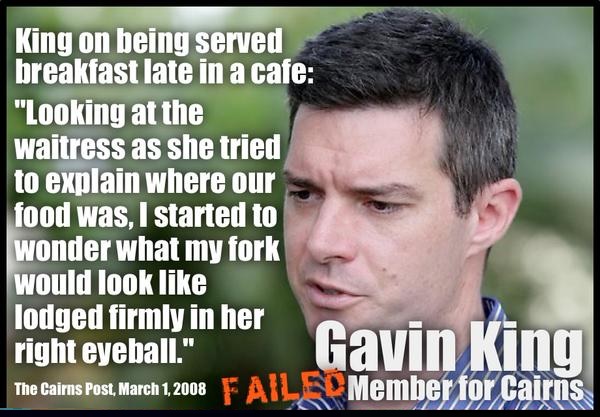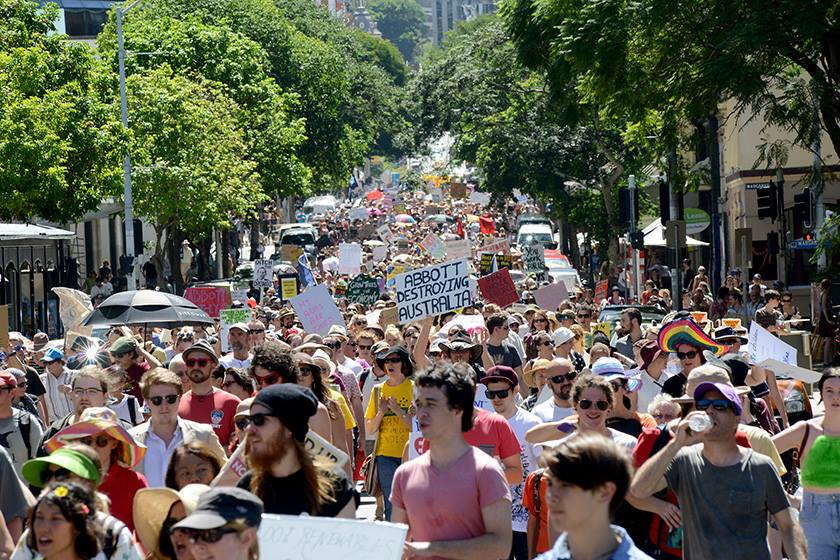Australia is not an economic basket case and the deficit to be announced in the upcoming budget is not the end of the world. Matthew N. Donovan reports.
MANY OF THE regulars on Independent Australia, you will know by now I am determined to make sure indisputable facts enter the national debate this election year.
I have recently written about how we are the lucky country and why we are being deceived on debt, but it seems the tendency to revert to gloom about our economy persists.
The facts about our budget – expenses versus revenues – just don't seem to be cutting through. The fact that we came through the Global Financial Crisis (GFC) stronger than almost any other country doesn't seem to get a hearing.
I take this opportunity to remind people that Australia was the only country in the developed world not to enter recession between 2008 and 2010.
In fact, Australia has not entered recession since 1991. A world record of 21 years, which we achieved last year.
The recent hysteria regarding the deficit that is predicted in the next budget only serves to frustrate me further.
It is for the above reasons I decided to write this article, outlining in simple terms what has happened in our economy since late 2008, when Lehman Brothers collapsed in the United States.
This information isn't hard to digest and is readily available. All my information was gathered from past budget's and Mid-year and Economic Fiscal Outlook's (MYEFO) dating back to John Howard and Peter Costello's last one in 2007.
The first and most important factor in any budget is the revenue side of the ledger. The money coming into the government coffers that funds all services provided.
Australia is currently experiencing a very fast growth rate of 1.7%. This is the highest growth rate in the OECD and we recently achieved the milestone of 23 million people. That's 15% growth – or three million people – since early 2004, when we reached 20 million.
This growing population requires ever increasing revenue coming in just to maintain services at the same quality and standard. This in no way accounts for the fact that services must constantly be improved and are under constant review in order for residents to get the best services available. They should have no less of an expectation of government. It's what good governments do; they provide quality, superior services to ensure the highest standard of living possible.
Leading up to the GFC, Australia was moving along at a good rate of knots, supercharged by the mining boom.
This, unfortunately, came crashing down when the shock that rocked the world hit in late 2008. Credit markets froze, stock markets plunged, jobs were lost in their millions around the world, consumer and business confidence took a whack and panic set in.
Australia wasn't immune from these events. In this globalised world economy, we saw first hand the downside of the increasing interconnectedness between nations the world over.
Our GDP growth in Australia displayed the full brutality of the carnage being wrought on the world. Many experts and people on the street were convinced that, like the rest of the world, Australia would enter recession.
However, despite all the forecasts, Australia avoided entering recession in 2009. This isn't to say we didn't see the impacts. Growth went from above trend, at 3.75% in 2008, to well below, at 1.37% in 2009. Over the last 20 years, trend growth has been an impressive 3.25%.
The next impact was inevitable; with a 10.6% turnaround in revenue growth in the immediate aftermath, government revenue not only completely stalled, it went backwards to the tune of five billion dollars, or 1.5% in 2008. This was followed by a decrease of six billion dollars or 2.1% the following year. These were big falls, especially considering in the last year of John Howard's pre-GFC government revenue grew by 9.1%.
This period, 2008 and 2009, is where all the damage was done and today's budget still suffers from it. It was nothing government did. It happened the world over. We were fortunate we avoided recession, our unemployment peaked nowhere near expected and we kept growing.
This didn't happen by accident. It required government to act to secure bank deposits and implement a world beating stimulus package that filled the hole in demand and kept us insulated from world events. It was a significant package of $52B, but we faced a significant problem and the response by the Australia Government was hailed by the IMF, OECD, World Bank and many economists as being a model response to the crisis.
It is also worth keeping in mind that our economy is so strong that through this period of struggle, GDP per capita continued to grow almost unabated.
Since 2008, Australia has grown over 13% when many nations are struggling to break even or are barely above the break even line. Our growth, outside the developing economies, is unheard of. One look at Europe and the United States and the holes they are in gives you some perspective of what could have occurred in Australia without prudent action.
Many say money has been “wasted”. To my mind, investing to ensure jobs and growth are secured during a severe time of hardship is the responsible thing to do. The irresponsible thing to do would have been to cut expenditure, in a reckless aimless slash and burn mentality, now exhibited horrifyingly in my state of Queensland, as revenues fell. Just because revenues fall doesn't mean the same services that were needed today aren't going to be needed and expected tomorrow. That is why action was taken; to maintain services and, most importantly, jobs. Many would not have appreciated your services being cut during the worst possible time in the last 85 years or so in order to achieve a surplus at all costs. Why is that a waste? The answer, if you're honest with yourself, is that it isn't.
Since the increase in spending to respond to world events, Australian government growth in spending has moderated significantly to around 5 per cent and revenue growth has grown to about 6 to 7 per cent or so.
Keep in mind, the need to invest and create new opportunities doesn't disappear because there is more pressure on the budget. Budgetary spending is being offset by structural saves and that is the responsible thing to do. It is a government's job to choose their priorities and, right now, I am happy with what they are focused on.
Something that should be monitored closley is the gap between real GDP and nominal GDP. Real GDP is a macroeconomic measure of the value of economic output adjusted for price changes. While nominal GDP is a measure that allows GDP growth to be compared year over year, removing the effect of inflation or deflation. Wayne Swan, as recently a couple of days ago, has pointed to the gap between the two as being of concern.
Many of these challenges I've mentioned have now been overcome — but some linger on, causing dislocations in the wider economy. The most devastating and long lasting impact of the GFC is that it created a flight to safety and, in a weak global economy, Australia looks very attractive to investors.
The upshot of this was strong upward pressure on the Australian dollar, which was already being pushed up by the weak U.S. dollar. There was a period in 2008 where the Australian Dollar crashed to around 60 cents against the U.S. but as Australia emerged from the GFC, looking much less impacted by the crisis than others, the currency surged again to record highs above $1, where it has stubbornly stayed since 2011.
This has had the result of pressuring exporters, especially manufacturers, resulting in bankruptcies and layoffs in pressured industries — both of which feed back into lower tax receipts.
Australia is also struggling when it comes to its balance of payments or terms of trade. It currently sits at around neutral to negative, diving as low as -$2 billion in recent times. This means we are importing $2 billion worth of goods more than we are exporting in any given period.
The final point is that, even though our debt has risen significantly, it is nowhere near the levels experienced in Japan, Europe or the United States. The world average debt to GDP ratio is 80 per cent. Australia sits at a mere 10 per cent. It's like having a $100,000 a year job with a $10,000 mortgage — an enviable position most of us wouldn't turn down.
We are not an economic basket case, as the ill-informed or just plain deceptive like to spruik. It is a challenging time but we are well positioned to invest for our future while still at a reasonable rate of growth. There is pressure on the budget due to downward revisions and the whack we took at the height of the GFC, but now is not the time to implement austerity; apart from the fact it doesn't work, it is unnecessary in our case.
There are some challenges in our economy, no doubt, but on balance the Prime Minister is right to say most world leaders are envious of our competitive advantage.
There is a need to return to surplus when prudent to do so and there should be a plan in place to do it in a reasonable fashion — but rushing that process prematurely will only hurt and create unintended, counter-productive consequences.
(Disclosure: Matthew N. Donovan is a former ALP state candidate and is a Labor Party member.)
This work is licensed under a Creative Commons Attribution-NonCommercial-NoDerivs 3.0 Australia License









